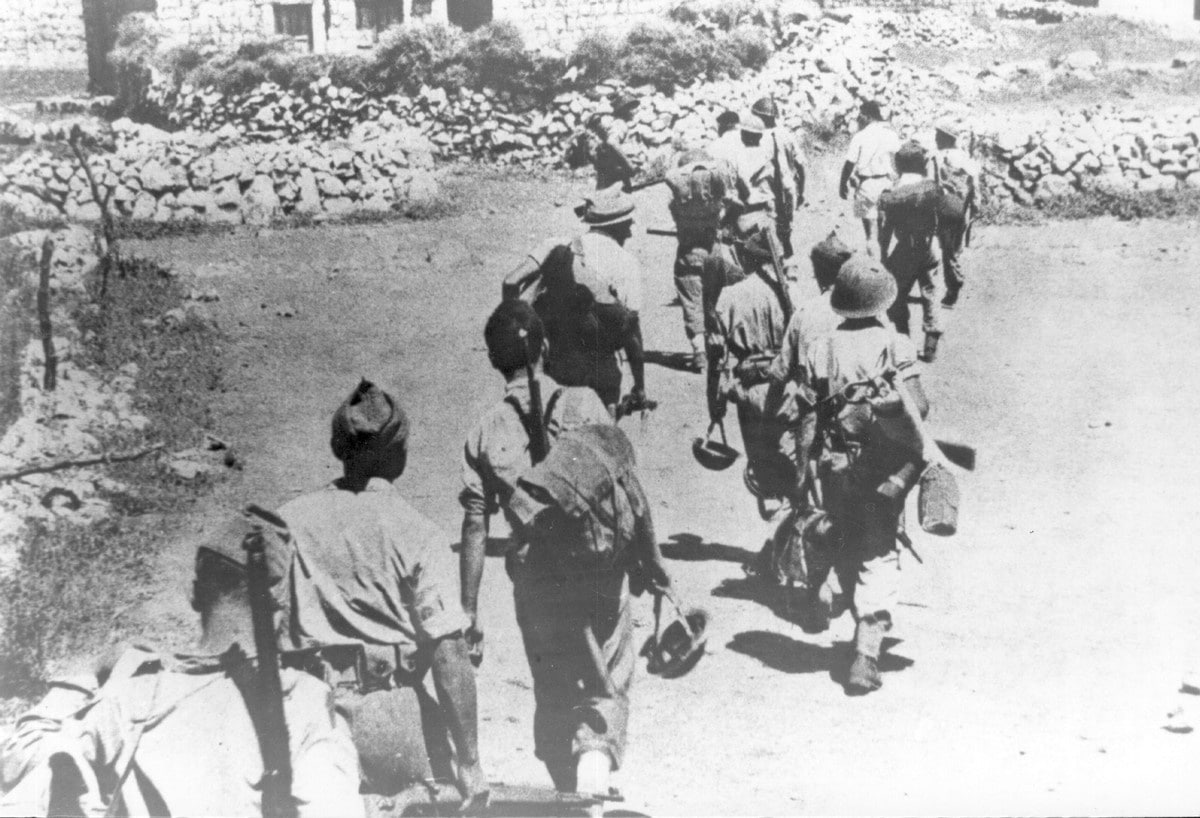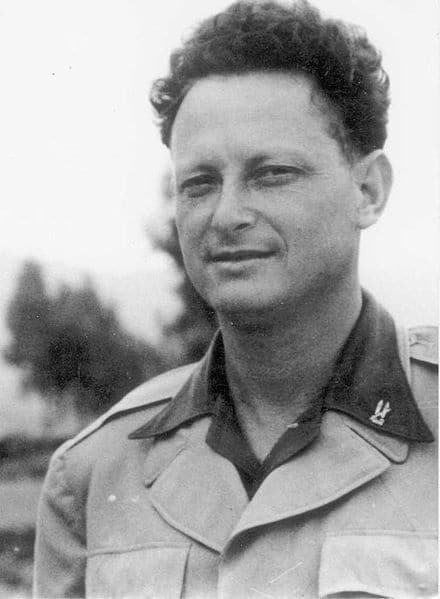“The Upper and Lower Galilee Are Now Continuous Jewish Territory” – thus declared the headline in Maariv on May 5, 1948. This headline is in reference to Operation Matateh, which took place on May 3, 1948. What is the story behind this operation, which prompted Yigal Alon, the senior commander in the War of Independence, to claim it had a “tremendous effect” on the conquest of Safed and the Hula Valley?
Background: A Moment Before the British Leave
Operation Matateh took place 11 days before the Declaration of Independence, meaning it was in the first part of the War of Independence, in which the focus was on fighting against the local forces. One of the characteristics of early May 1948 was the knowledge that the British were supposed to be withdrawing from Israel shortly, and one of the most important parameters in their withdrawal was who controls the area. In other words: areas under Jewish control would, technically, be handed over to Jews, and vice versa. The knowledge that control of the localities and roads could significantly influence the boundaries of the state, to a large extent dictated the goals of the war in those days. One of the places where Jewish control was teetering was in the north, where the Arabs and Bedouins had cut off the Upper Galilee from the Lower Galilee and from the rest of Israel. This was done primarily by attacking Jewish transport.

Operation Goals: To Connect the Galilee to Israel
Yigal Alon, Palmach Commander until 1946 and the senior commander of the largest regular force in the War of Independence, recommended that the Upper Galilee be connected to the Lower Galilee, and that the northern boundary be conquered – from Metula down to the Kinneret. This operation was codenamed Operation Yiftach and its official goals were conquest of the Eastern Upper Galilee including the City of Safed, to purge the Eastern Upper Galilee of Arab forces and to block main invasion routes in anticipation of an invasion of Arab armies.
One of the first stages of Operation Yiftach was Operation Matateh, which was, in the words of the Order: “To eliminate enemy bases, which have been sabotaging and harassing transport in the Galilee, to destroy toeholds of forces invading from the East, to connect the Lower Galilee and the Upper Galilee in a broad, relatively safe strip”.
Operation Matateh: Psychological Warfare, Diplomacy and Cunning
One of the methods typical of Yigal Alon’s operations was psychological warfare. He met with the dignitaries from the Bedouin tribes in the area, warned them in advance against the penetration of military forces into the area, and as a result, with the first mortar bombardment of the area, some 2,000 Bedouins fled to Syria, saving the combat units a great deal of fighting.
Alon also knew how to tell friend from foe and to take advantage of common interests. He thus recruited into the Palmach part of the residents in the village of Tuba, the Arb-al-Heib tribesmen, who were friendly to the Jews and whose leader, Sheikh Abu Yousuf Hussein Mohammed, was at odds with the representatives of the Supreme Arab Council in Safed. Thus was established the Palheib – the Palmach’s Bedouin unit, which formed the nucleus of the IDF’s Minorities Unit.
Alon was also a brilliant military leader exercising planning and cunning in the field. Thus for example, in order to conquer Malqiyeh, a hard-to-conquer Arab village which put up stubborn resistance, Alon carried out a diversion and outflanking maneuver. He caused the villagers to believe the main assault would be on the front of the village, and when the Arabs diverted their forces toward the front, he did a motorized outflanking and surprised the defenders from the rear.

Outcome of the operation
The operation resulted in the Upper Galilee being connected to the Lower Galilee and the rest of the country. It even enabled free transport to and from the region without the need for armored convoys. Yigal Alon said the operation had a “tremendous psychological effect” on the Arabs in Safed and the Hula Valley who had been cut off from Syria, and that this operation paved the way for their ultimate conquest.